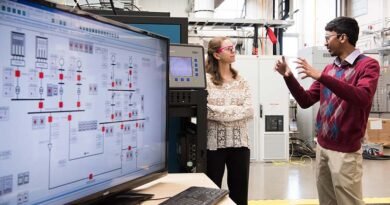US DOE invests $62 mil in battery supply chain to boost battery recycling
On March 28, the US Department of Energy (DOE) revealed a $62 million commitment to bolster domestic battery recycling efforts, aligning with the increasing need for such recycling as electric vehicles (EVs) gain more traction in the automotive market. This fresh injection of funds into battery recycling, reprocessing, and collection initiatives is highlighted as a crucial component of the Biden administration’s landmark $1 trillion infrastructure legislation, as stated in the announcement. Within this legislation, $7 billion has been allocated specifically for enhancing the domestic battery supply chain.
“Investing in the entire battery supply chain—from sourcing critical materials to manufacturing and recycling—positions the United States at the forefront as we develop our clean energy economy,” stated US Secretary of Energy Jennifer Granholm in a DOE statement released on March 28. “With substantial backing from President Biden’s Investing in America agenda, we are constructing a sustainable, circular supply chain that reduces costs for consumers and enhances our competitiveness in global manufacturing.”
The funding for the 17 announced projects includes:
- $40.1 million allocated to seven projects aimed at enhancing market demand for recycling consumer batteries, utilizing methods such as artificial intelligence and automated sorting.
- $14.4 million designated for four projects focused on student education and outreach, such as organizing e-waste collection events, to increase involvement in recycling consumer electronics.
- $7.2 million directed towards six projects that are establishing battery collection programs, including the creation of drop-off locations and storage facilities.
Also Read About –
Sodium-Ion Batteries: Revolutionising Renewable Energy and Changing the Rules
Mitsubishi battery spinoff contracted for 328 MWh storage system in Idaho
Growing EV sales
During the Biden administration, Electric Vehicle (EV) sales have seen a substantial increase, quadrupling as stated in the DOE’s announcement.
The statement emphasizes the growing demand for EVs and stationary energy storage, predicting a potential ten-fold expansion in the lithium battery market by 2030. It highlights the importance of investments in sustainable and cost-effective recycling of consumer batteries to ensure a stable domestic materials supply chain that can meet this rising demand.
However, despite the significant growth in EV sales, certain aspects of essential EV infrastructure still lag behind. For instance, electric grids and lithium production for batteries remain underdeveloped, according to an analysis by S&P Global.
Data from S&P Global’s EV Essentials report released on Feb. 29 reveals a notable increase in the EV market share of total light-duty vehicle sales in recent years. Plug-in electric vehicle sales saw an average monthly market share rise from 7% in 2022 to 9% in 2023.
Year on year, Plug-in Electric Vehicle (PEV) sales surged by 57%, with expectations of similar growth in 2024 according to S&P Global’s data.
Furthermore, processed and refined lithium imports experienced a decline of 2.4% and 20.5%, respectively, in 2023 based on S&P Global’s data. There are concerns about global lithium supply peaking in 2024, potentially leading to a demand deficit by the end of the decade.
In response to these challenges, the US DOE has recently announced a substantial $2.6 billion investment in domestic lithium production. This investment aims to establish a facility capable of producing 40,000 metric tons of battery-grade lithium annually, as outlined in a DOE announcement on March 14.
Source – spglobal.com



